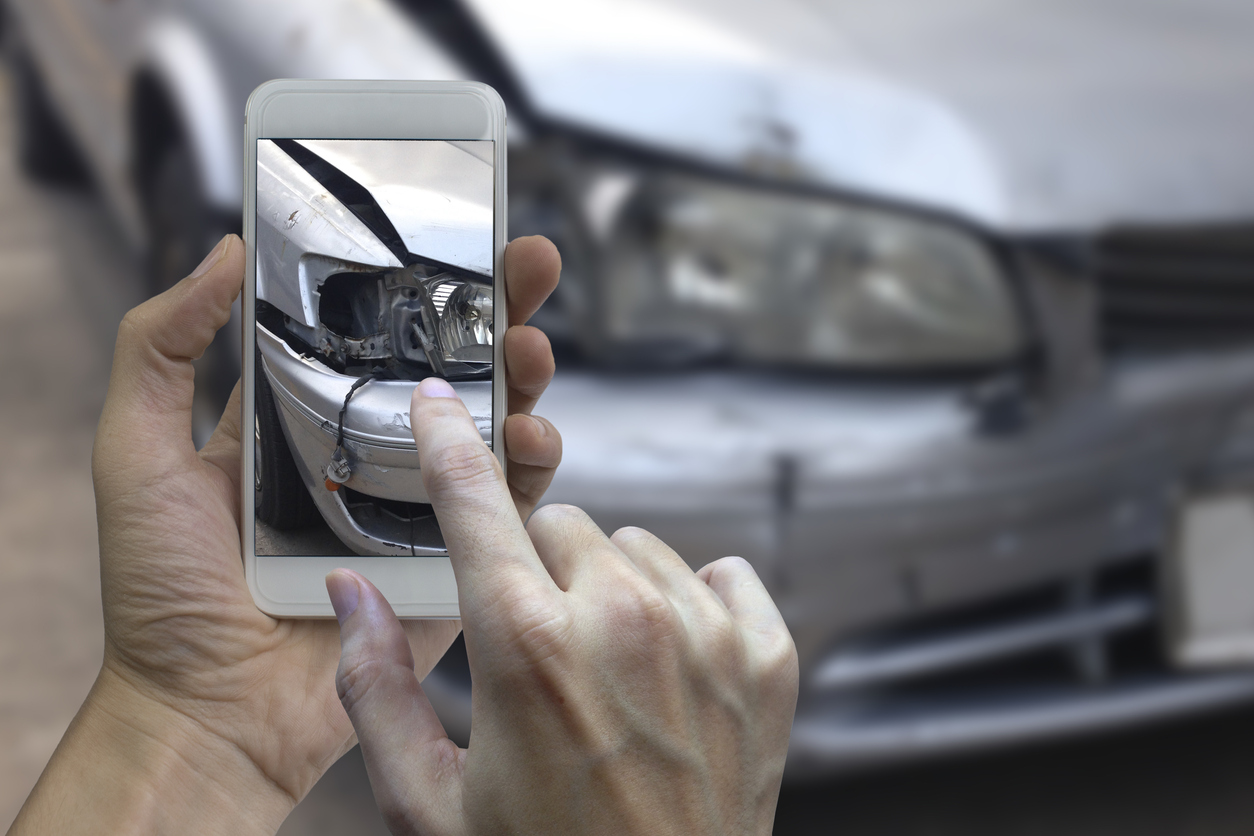Drivers involved in an auto accident are required by New Jersey law to stop and exchange personal and insurance information. In addition, in cases involving injuries, a driver must attempt to render aid to those who need it. However, some drivers are so shocked and scared by the circumstances of the accident that they panic and flee instead.
The penalties for leaving the scene of an accident in NJ can include fines of $200 to as much as $15,000, plus a suspended license and prison sentence of up to 5 years.
Moreover, New Jersey prosecutes leaving the scene of an accident under two distinct statutes: one as a traffic violation and one as a criminal act. A person who flees an accident in which people are injured or killed can be charged with both.
Penalties for Leaving the Scene of an Accident in NJ (Property Damage Only)
When a person leaves the scene of an accident with no injuries—i.e. there is only property damage—that person is charged with a traffic violation under N.J.S.A. 39:4-129. The penalties are as follows:
- Jail: Drivers can go to jail for up to 30 days upon conviction for leaving the scene of an accident involving no injuries.
- License Suspension: For accidents with only property damage, a driver who leaves the scene faces a mandatory suspension of up to 30 days.
- Fines: Leaving the scene of an accident involving only property damage carries a fine of $200 to $400 for a first offense. A second offense raises the fine to $400 to $600.
- Surcharge: New Jersey imposes a surcharge of $450 on drivers who accumulate six points on their license. An additional $75 is imposed for each point over six. This is in addition to the fine.
- Points: New Jersey drivers will receive 2 points for leaving the scene of an accident with no injuries.
Penalties for Leaving the Scene of an Accident in NJ (Injuries or Death)
When a person leaves the scene of an accident in which one or more persons are hurt or killed, the penalties increase significantly. In addition, the person will be charged with both the traffic offense (39:4-129) and the criminal offense (2C:12-1.1). These penalties are as follows.
- Jail/Prison: Conviction for the traffic violation carries a sentence of up to 180 days. The criminal charge is a third-degree indictable offense (felony) that carries a prison sentence of 3 to 5 years.
- License Suspension: For accidents with injuries or fatalities, leaving the scene means a one-year suspension.
- Fines: Under the traffic violation, the fine for leaving the scene of an accident resulting in injury or death is between $2,500 to $5,000. The criminal offense carries a fine of up to $15,000.
- Surcharge: Due to the number of points assigned to the traffic offense for a hit-and-run with injuries, drivers can expect to pay a surcharge of at least $600, in addition to the fines.
- Points: New Jersey assigns 8 points for leaving the scene of an accident in which someone is hurt or killed under the traffic offense statute.
How Leaving the Scene of an Accident Affects Auto Insurance Rates
Being involved in an accident can have a serious impact on one’s auto insurance rates. However, leaving the scene of the accident can make it worse. This risky behavior counts against drivers, who are charged more due to the likelihood of demonstrating other risky (i.e. accident-causing) actions. One study found that New Jersey insurance rates go up by as much as 84% following a conviction for a hit-and-run.
Did you
know?


Adam Rosenblum
The Difference Between the Traffic Violation and Criminal Charge for Hit-and-Run (NJ)
It may seem strange and unfair that drivers who flee an accident with injuries or death are charged twice under different laws in NJ. Technically, however, they are being charged for two slightly different situations.
Under the traffic law, NJ alleges that the person was aware he/she was in an accident and left the scene without doing what is legally required. The traffic law does not presume the person knew it was illegal to leave the scene, only that they did it. This is true of most traffic laws in New Jersey.
The criminal offense alleges that a person knew he/she was supposed to remain on the scene but opted to flee instead. In other worse, the person is first charged with having left an accident site involving injuries or death (traffic violation) and knew that he/she should not have done it (criminal offense).

Need help with your speeding ticket?
Call Now - We've Fought Over 100,000 Traffic Violations
Quick, free, and no obligation.
Defenses to Leaving the Scene of an Accident in New Jersey
A hit-and-run in New Jersey is a serious offense and one should not take it lightly. The chances of beating the charge(s) on one’s own is slim. A person facing a charge of leaving the scene of an accident should hire an attorney to help with their defense. Depending on the circumstances, there are several ways to defend against the charge, provided the facts are true and can be proven in court.
- One is that the driver did, in fact, stop and offer his/her information to the driver of the other vehicle(s) involved, but the other driver refused to accept it (for example, if the other driver claims he/she wants to settle the matter without police and/or insurance).
- Another defense is that traffic or other conditions made stopping near the accident difficult or impossible. This defense works if the driver being charged can demonstrate clearly why he/she was not able to stop closer and what efforts were made to get near the accident site to provide information/help to the other driver(s).
- A third defense with limited effectiveness involves claiming that one was unaware an accident took place. This strategy only works with collisions in which there are no injuries and the property damage is less than $250. In all other instances, subsection (e) of 39:4-129 establishes a presumption that all drivers involved in an accident are aware of the crash.
Resolving the Case via a Settlement
Even if the above defenses apply, the best strategy may be to attempt to negotiate the charge down to a lesser offense (a.k.a. a plea bargain). This is one of the more common tactics and is highly effective when done with the help of an experienced traffic ticket attorney. Depending on the circumstances of the accident, an attorney may be able to reduce the charge to failing to file an accident report. This is a no-point offense with a max fine of just $100.
Important Disclaimer: If the plea bargain involves taking a guilty plea to a certain other offenses, that guilty plea may end up being used against the driver in a subsequent civil lawsuit (see “Civil Liability in Leaving the Scene of an Accident: Should I Plead Guilty?” below). This is another reason it is critical to consult with and/or hire a knowledgeable attorney before proceeding down this route.

What NJ Drivers Should Do Following an Accident
The proper response to being involved in a motor vehicle collision is to do the following:
- Immediately stop the vehicle. If it is not safe to do so, then pull over at the soonest possible moment and return to the accident site.
- Provides one’s name and address to other driver(s) involved.
- Shows other driver(s) involved one’s license and vehicle registration.
- Provide “reasonable assistance” to anyone injured in the accident, including calling an ambulance or transporting the injured person to a medical facility.
- If the other vehicle was unattended, attempt to locate the driver. If that’s not possible, leave a written notice that includes one’s contact information with the vehicle.
- If the accident results in injury/death or more than $500 worth of property damage, fill out an accident report with police.
The worst thing a driver can do after an accident (short of not following the requirements of the law outlined in this article) is to admit guilt, either to the other party involved, the police, or even an innocent bystander. As we know from TV “anything you say can and will be used against you in a court of law,” and even a casual statement made at the scene (e.g. “I simply wasn’t paying attention” or “I was distracted looking down at my phone”) can be used as an admission of guilt should the case go to trial. Everyone has the legal right to remain silent and should exercise that right.
What Happens When Drivers Hit Parked Cars or Immobile Property
Drivers who strike a parked car or other physical property are still obligated to exchange information with the owner of the vehicle or property. If that person is not immediately present and cannot be located, then the driver must leave a note with all the necessary information (name, address, contact information, etc.). The note must be left in a conspicuous place; this could be on the windshield of a parked car or on the front door of a building where property was damaged. As with any accident, if the damage is estimated at $500 or more a police report must be filed as soon as possible.
DWI and Leaving the Scene of an Accident
Some drivers who leave the scene of an accident do so because alcohol was a factor in the crash. By fleeing, these drivers often hope to sober up and avoid a DWI charge and it’s resulting penalties. This is a grave mistake. It assumes that police will not catch the driver until after the driver has sobered up enough that he/she would be considered to be under the legal limit (BAC <0.08%). Even if that happens, police can use other evidence (red eyes, the smell of alcohol on one’s breath, etc.) to charge a person with DWI, and these factors may not diminish before police arrive.
Worse, it can entice officers to file more grievous charges against the driver. Even if the driver manages to luck out and avoid a DWI charge, he/she can still be charged with resisting arrest and evading police. If police are able to prove that the driver who fled was drinking, it can also lead to police bumping up the charge from DWI to assault by auto or vehicular manslaughter. Each of these additional charges carries the potential for multiple years in prison, and the sentences will add up significantly.
- How Do Police Figure Out Who Left the Scene of an Accident?
Police must first locate a driver who fled an accident before charging him/her with the violation/crime. Officers do that using many different methods and tactics. This includes clues from the accident, such as paint marks on the other car(s), tire marks, and eyewitness testimony. Traffic camera information can also help locate a driver and prove his/her vehicle was involved. Bottom line: The chances of getting away with fleeing an accident are incredibly slim.
- What If I Can Hide Evidence of Having Been in an Accident?
Occasionally drivers attempt to hide the fact that they have been involved in accidents after fleeing the scene. Such actions may include covering up paint scratches and knocking out dents. In 2010, one driver even went so far as to cover his car in deer meat so as to disguise having struck another person. Such efforts are likely to fail. As mentioned above, police can use videos and pictures from traffic cameras and/or dash cameras to determine where a person has been and whether the vehicle was involved in an accident. The wealth of options available to police should not be underestimated.
Moreover, attempting to hide or destroy evidence of an accident is a violation under the traffic law statute. A conviction means an additional $250 to $1,000 fine. Worse, police can file criminal charges of evidence tampering and obstruction of justice.
- Civil Liability in Leaving the Scene of an Accident: Should I Plead Guilty?
It is rarely a good idea to plead guilty to any traffic violation or criminal offense without a plea bargain or legal defense strategy in place. In the case of traffic accidents, a driver who is found guilty of a traffic violation associated with the accident can be sued in civil court for any injuries resulting from the accident.
Thankfully, in New Jersey drivers have the option of pleading guilty to a charge with a civil reservation. Requesting a civil reservation means the conviction cannot be used against the driver in a civil lawsuit associated with the accident in question. Note that it is still advisable to have attorney representation in court as this mechanism is technical in nature.
- Is Failing to File a Report the Same Leaving the Scene of an Accident?
No. Failing to file a report following an accident is a separate charge (39:4-130) from fleeing the scene of an accident. Drivers in New Jersey are required to file an accident report if the estimated damage is greater than $500 or there are injuries. Those who flee any such accident are sometimes charged with both offenses. A conviction for failing to file an accident report comes with a fine of just $30 to $100 and no points are assessed. For this reason, a skilled attorney will often attempt to get a charge of leaving the scene of an accident reduced to failing to file a report.
- What Should I Do If I Have Left the Scene of an Accident?
A person who leaves the scene should immediately consult with an attorney before doing anything or speaking with anyone. An experienced attorney will be able to assess the circumstances of the accident to determine the best course of action. An attorney will know how best to act so as to minimize the possible charges leveled against the client. The right attorney will also work tirelessly to ensure that the client avoids the worst possible consequences.
If you or a loved one has fled an accident or been charged with leaving the scene, contact the Rosenblum Law right away. Our skilled traffic ticket and criminal defense attorneys have helped many people in similar situations. Email the Rosenblum Law or Call 888-815-3649 today for a free consultation about your case.


